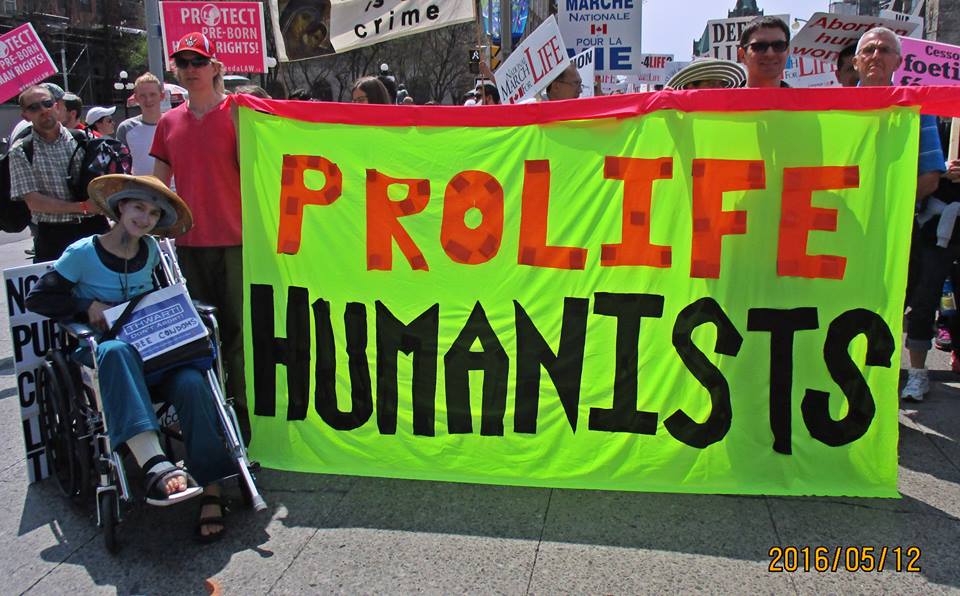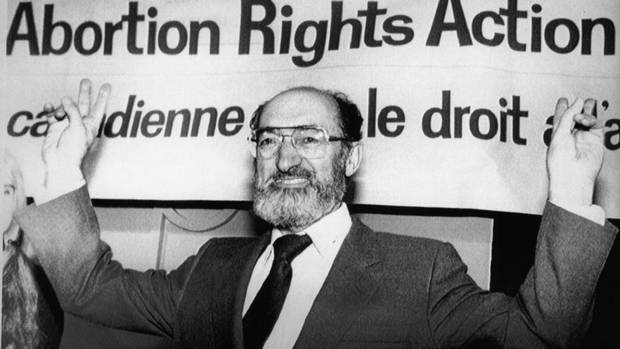
Yes, life begins at fertilization.
But… it doesn’t end at birth!
If your definition of “pro-life” doesn’t include the suffering of lives outside of the womb you either need a new definition, or a new label!
And unlike those who often accuse pro-lifers of being “pro-birth” (pro-choice liberals and humanists who balk at the separation of toddlers from their own parents, but not at the sepration of fetuses from their own limbs) I’m a progressive-liberal-atheist-humanist, who also opposes abortion.
I’m pro-life because compassion compels me to care for the most vulnerable and defenceless — and none is more defenceless than the one too young to fend for themselves and wholly dependent on his or her mother to live. And I’m also pro-life because I genuinely care for women facing unplanned pregnancies, and I want to help eradicate the social and financial inequity that often leaves them feeling like they have “no other choice” but abortion.
In other words, I’m pro-life because unlike the message strangely broadcast on Melania Trump’s jacket while she was visiting imprisoned immigrant children, I really DO care!
And that’s precisely why I can’t stay silent or turn a blind eye to the suffering of children elsewhere! Whether it’s children (or adults) being trafficked, boys maimed or killed by genital mutilation complications, children torn from their parents at the border, children waiting for adoption from foster care, children aging out of foster care and facing bleak prospects for their future, children who face hunger both in Canada and in the United States due to a lack of a living wage, or who are sick due to a lack of sufficient healthcare, children threatened by war or by corporate invasion and devastation of their land, or children like those in Flint, Michigan facing lifelong health consequences because of poor government choices… every last one of these lives matter!
Compassion for the vulnerable is painfully short-sighted if it stops caring for children and families in crisis when abortion is no longer an option for them! And that’s only the children! We could add to the above list the wrongfully convicted who end up on death row, and perhaps even the suffering of our factory farm animals, although I accept that it’s possible to be consistently pro-human-life even if that position is inherently speciesist.
Now in all fairness, the idea that pro-lifers should be “single-issue” and only focus on abortion is understandable. After all, the rest of society can fight against those other issues, but no one but those who care for unborn lives will be speaking up for them. And these other issues don’t represent state-sanctioned deaths in such high numbers, either. Furthermore, as a movement we don’t have unlimited time and resources to devote equally to all matters that jeopardize human life. No one would reproach the cancer society for not being just as active in fighting heart disease. We can’t all do everything.
But we can all do something.
Let’s be honest: how much does it cost to issue a statement that separating a child from his asylum-seeking parents is wrong? How much effort or funds does it take to call an elected official to ask them to make a difference for children in any of these other areas? I don’t think anyone is suggesting that the pro-life movement should take on every cause with the same fervour as abortion, but surely we ought not to be called out for staying silent in the face of child suffering!
I want to be part of a pro-life movement that is known for its compassion. Not one that has a reputation for merely trying to restrict or eliminate abortion while leaving nothing sustainably better in its wake. Imagine how the dialog would change if people looked at us and said “I disagree about life having value from fertilization but those pro-life people are bending themselves every direction to make society a better place!” Instead, they see a movement that’s determined to take abortion away while leaving little more than mediocre charities in its place.
As the United States sits on the edge of reversing Roe V Wade, do we really think that crisis pregnancy centres giving out free diapers and maternity clothes will be able to sustain all the women and families in financial crisis? Or are pro-life conservatives expecting that rich people will snatch away and raise all the poor people’s children? Yes, there are approximately 36 couples available to adopt for every one infant placed for adoption today, but in a world without abortion, it’s going to take a lot more big-picture thinking to solve the needs that an abortion-denied society will be facing!
I’m grateful for the rise of consistently pro-life organizations, like Consistent Life, Rehumanize Intl, All Our Lives, New Wave Feminists and Democrats for Life. Together with my own group, Pro-Life Humanists I believe we are changing the public dialog!
It’s time for those who identify as pro-life to join with those who identify as pro-choice and work toward common-ground social change. We could all stand to care a little more. A better society is possible, and we CAN solve social and economic injustices without resorting to the violence of abortion, and without leaving our born children behind either. It’s time to be pro-life for all lives.
Read More





















Recent Comments